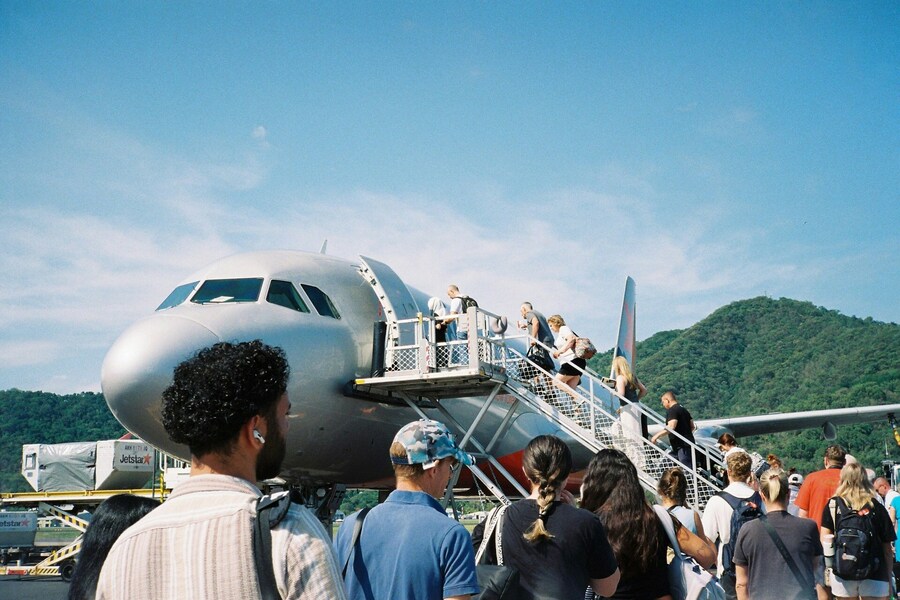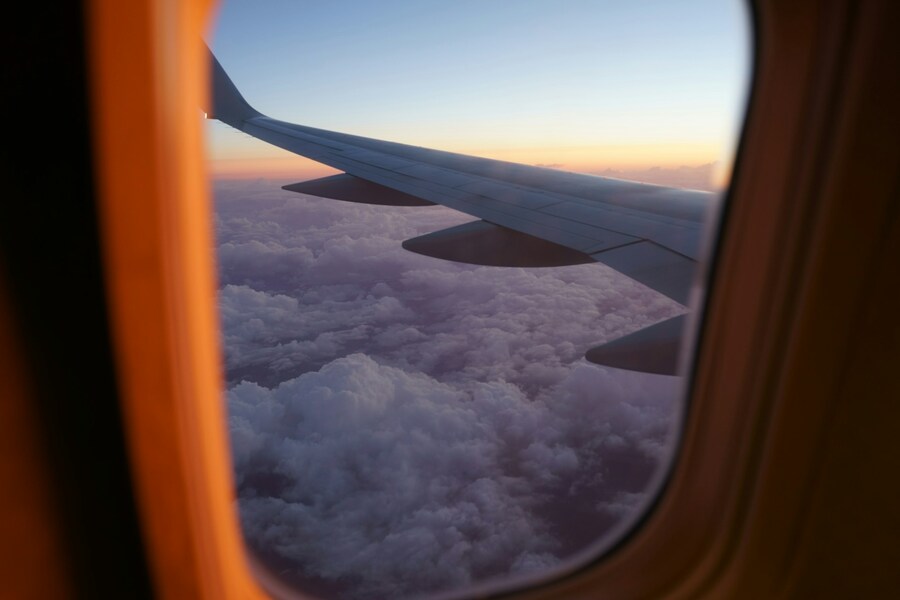The digital age has fundamentally reshaped the ritual of air travel, transforming the often-stressful airport experience into one that can be largely managed from the comfort of a couch, hours before stepping foot into the terminal. Among the most crucial, yet often underestimated, aspects of this modern journey is the timing of your flight check-in. For most major airlines, a key window swings open exactly 24 hours before your scheduled departure time, allowing passengers to confirm their presence online or via a mobile application. This seemingly simple action, however, is far more than a mere administrative formality; it's a critical strategic maneuver that can significantly impact your comfort, convenience, and overall travel fate.
The conventional wisdom that dictates checking in precisely at the 24-hour mark has persisted for good reason, evolving from a slight advantage into a near-necessity for the savvy traveler. For those who view their journey as a calculated game of maximizing gains and minimizing friction, that specific moment marks the starting pistol for a race to secure various perks and assurances that can elevate an ordinary flight into an exceptionally smooth experience. The difference between checking in on the dot versus a few hours later can be the difference between a coveted aisle seat near the front and a cramped, middle seat near the lavatory. It can even, in the rare but stressful instance of an overbooked flight, determine whether you are bumped to a later departure. This complete travel guide delves into the mechanisms behind the 24-hour rule, offering a comprehensive strategy for maximizing the benefits of early check-in and ensuring your travel is as seamless and stress-free as possible. So, let's dive in!
What crucial advantages await when you check-in the second the clock hits 24 hours?
Understanding the importance of the 24-hour check-in is the first step; executing it flawlessly is the key to unlocking the full suite of advantages available to the modern flyer. This early action sets in motion a cascade of potential benefits, all centered around the simple principle of securing limited resources – seats, space, and priority – before the masses arrive. It's a low-effort move with a high potential return, fundamentally altering your position in the airport and airline systems, and making the travel process much more predictable and pleasant. From the moment that 24-hour window opens, you gain influence over several key elements of your upcoming flight experience, provided you act swiftly and with intention.
Score better seats

Source: Manki Kim/Unsplash
One of the most compelling reasons to set an alarm for the precise moment online check-in becomes available is the immediate access it grants to the seating chart. While many travelers reserve a seat when they purchase their ticket, particularly on airlines that include seat selection in the fare, a significant number of passengers either choose to forgo this option to save money or are flying on basic economy fares where seat assignments are deferred until check-in.
At the 24-hour mark, airlines often release a portion of the seats that were previously held back for a variety of reasons. These could include blocks reserved for high-tier frequent flyers who haven't yet checked in, seats requiring a fee that weren't purchased, or even premium economy seats that the airline has decided will now be allocated to general passengers to ensure the flight is filled efficiently. By being among the first to check in, you are presented with the freshest, most comprehensive inventory of available seating options. This is your prime opportunity to snag a window or aisle seat that has a little extra legroom, an exit row position (assuming you meet the safety requirements), or simply move away from the dreaded middle seat. The early-bird traveler is typically rewarded with a significantly better selection than those who wait even a few hours, when the seat map has been picked over, leaving only the least desirable spots. This strategic timing transforms the seat lottery from a gamble into a calculated choice, giving you the best possible shot at securing a comfortable pocket of personal space for your journey.
Snag upgrade chances
While free, unexpected upgrades to First or Business Class are the stuff of travel lore, early check-in does play an understated, yet tangible, role in the upgrade mechanism. For passengers who have airline elite status, the check-in time can serve as a tie-breaker on the upgrade waitlist. If multiple passengers with the same status level are vying for a limited number of remaining premium seats, the system may often default to the passenger who checked in earliest. Even for travelers without elite status, the 24-hour mark often presents the opportunity to purchase deeply discounted last-minute upgrades. Airlines, realizing that a premium seat will otherwise go empty, may offer these upgrades at a fraction of the original cost during the online check-in process. This offer is frequently time-sensitive and inventory-dependent, meaning the first passengers to check in and see the offer have the best chance of capitalizing on it.
Moreover, a prompt check-in confirms your status as a committed flyer. In the rare scenario where an airline is looking to "upgrade" a few economy passengers for operational reasons (such as needing to reconfigure seating due to an aircraft change or an inoperable seat), they sometimes prioritize passengers who have demonstrated their intention to fly by checking in early. It's a subtle nod to preparedness and can occasionally place you in a more favorable position should a discretionary upgrade opportunity arise at the gate. While no check-in time guarantees an upgrade, checking in early ensures you've done everything within your control to optimize your chances for either a preferred seat or a last-minute premium offer.
Get on the plane quicker

Source: Sawada Kedavra/Unsplash
The mechanics of boarding are intrinsically linked to the check-in timeline, particularly for airlines that use a non-assigned or first-come, first-served boarding structure, like Southwest. On these carriers, your check-in time determines your boarding group and position, which directly impacts your ability to choose a better seat and find overhead bin space. A two-minute delay in checking in at the 24-hour mark can push you back multiple boarding positions, relegating you to a later group and almost certainly guaranteeing you a middle seat and the frustration of having to gate-check your carry-on luggage due to full bins. The difference between a coveted "A" group boarding pass and a disappointing "C" group pass is often measured in mere seconds of check-in timing.
For all airlines, an early online check-in also means that your boarding pass is issued and available on your mobile device or for print. This simple fact is the most crucial step in streamlining your airport arrival. Instead of waiting in the general check-in line, you are now equipped to head straight to the security checkpoint, saving valuable time and reducing anxiety. This efficiency extends to those who need to check luggage, as most airlines now have designated, shorter lines for "Baggage Drop" dedicated to passengers who have already completed the check-in process online.
Skip the check-in queues
The time saved by online check-in extends far beyond the security line. By having your boarding pass ready, you bypass the potential logjam at the traditional check-in counters. During peak travel seasons, these lines can stretch for significant distances, adding an hour or more to the airport process before you even reach the Transportation Security Administration (TSA). Completing the check-in 24 hours in advance eliminates this stressor entirely.
This preparatory step also allows travelers to focus on other pre-flight logistics, such as ground transportation and parking. For instance, travelers who have already secured their boarding pass can then direct their attention to navigating the often-complex world of airport parking. Services like ParkingNearAirports.io offer a streamlined platform for reserving long-term airport parking, sometimes at significant parking discounts compared to the drive-up rates. By using an airport parking app or website to compare options, travelers can easily pre-book off-site parking, often with complimentary shuttle service, thereby sidestepping the often-exorbitant on-site airport parking fees. This holistic approach, where online flight check-in is paired with smart parking reservations, turns the typically rushed airport arrival into a calm, efficient transition. You arrive with your boarding pass in hand and a guaranteed parking spot waiting, reducing the airport footprint to little more than a bag drop and a quick security screening.
Guarantee your seat

Source: Talal Ahmad/Unsplash
Perhaps the most significant, albeit rare, benefit of checking in early is the protection it offers against involuntary denied boarding, commonly known as being "bumped." In an industry practice that still exists to mitigate losses from no-shows, airlines frequently oversell their flights. When the number of checked-in passengers exceeds the available seats, the airline must deny boarding to some passengers. While airlines first solicit volunteers in exchange for compensation, if not enough volunteers come forward, they must involuntarily deny boarding to travelers.
The criteria for selecting who gets involuntarily bumped can vary, but one criterion often employed is the check-in time. Passengers who checked in later may be more susceptible to being bumped than those who confirmed their presence the moment the 24-hour window opened. By checking in early, you establish yourself as a confirmed, committed flyer within the airline's system as soon as possible, essentially solidifying your place on the manifest. While being bumped is an infrequent event, especially on domestic routes, checking in promptly acts as a simple, effective insurance policy against this major travel disruption. It's the final and most critical reason why the 24-hour rule is less a guideline and more a fundamental rule of advanced travel strategy.
Conclusion
The persistent question of whether timing your flight check-in actually matters is definitively answered by the tangible benefits afforded to the prepared passenger. The 24-hour window is not a suggestion, but a crucial inflection point in the modern air travel process. It's the moment where an otherwise generic booking transforms into a personalized journey, dictated by the passenger's proactivity. By utilizing this opportunity, travelers seize control over their seat assignment, maximize their chances for an operational upgrade, secure a better boarding position for speed and overhead space, and fundamentally accelerate their passage through the airport's initial bottlenecks.
Ultimately, the act of checking in precisely when the clock strikes 24 hours is a powerful, low-friction method to reduce travel friction and enhance comfort. It's a strategic layer of planning that, when combined with other smart moves like pre-booking airport parking or joining frequent flyer programs, separates the rushed, stressed traveler from the smooth, efficient one. In the complex ecosystem of air travel, preparedness is paramount, and the timely traveler will, without fail, reap the most rewarding experience. We wish you a fantastic journey and a comfortable seat!






